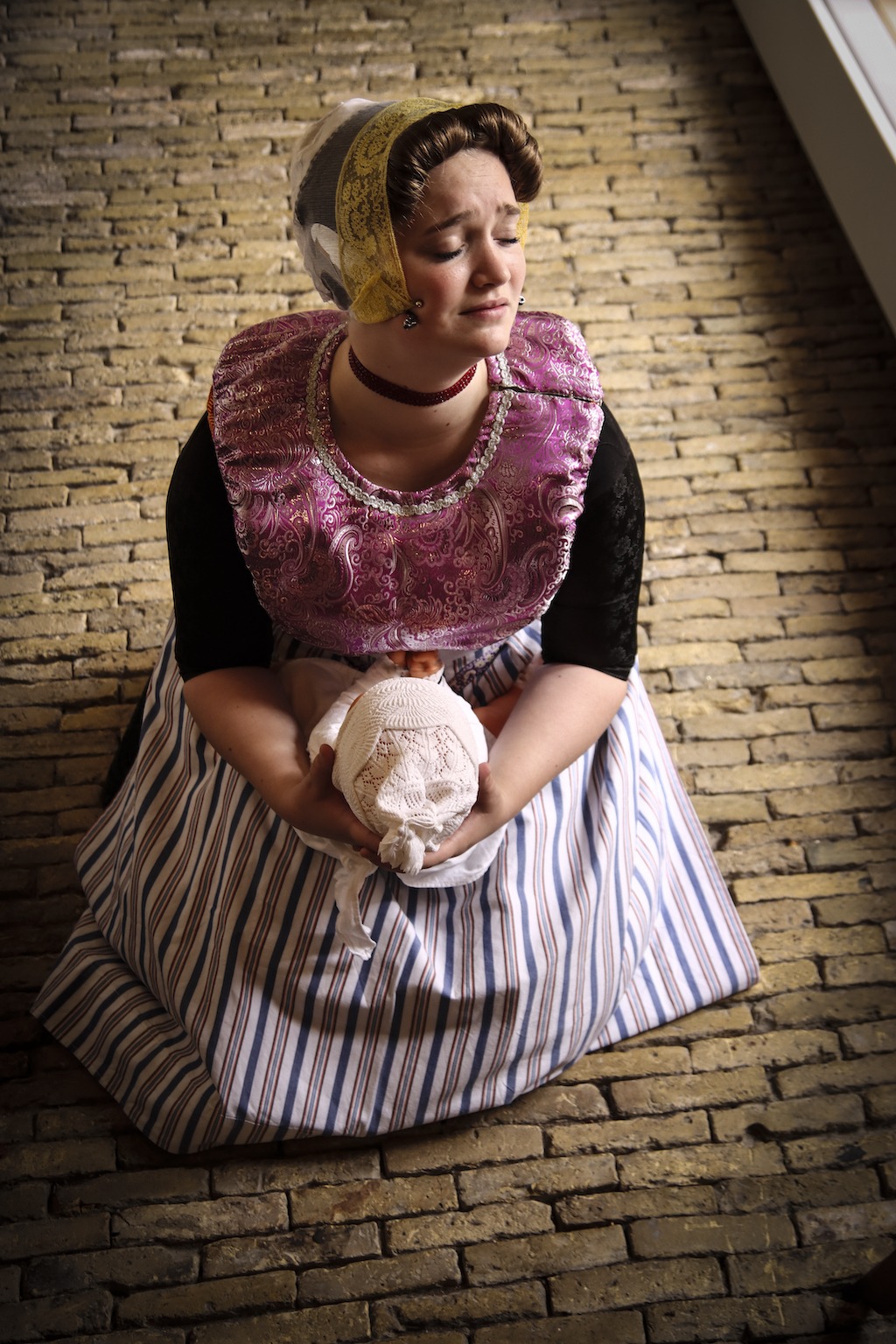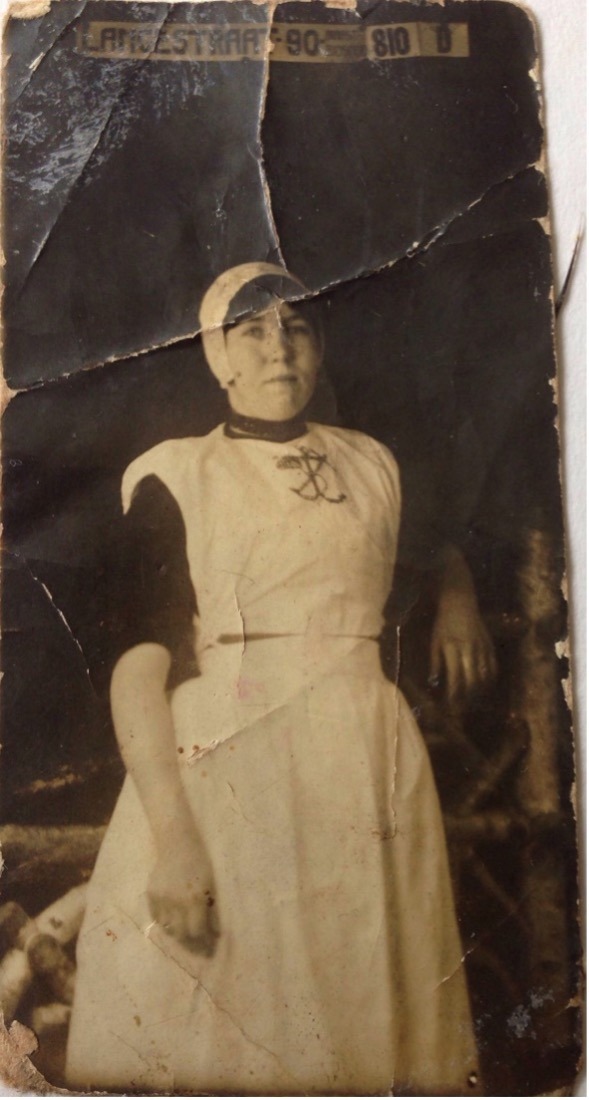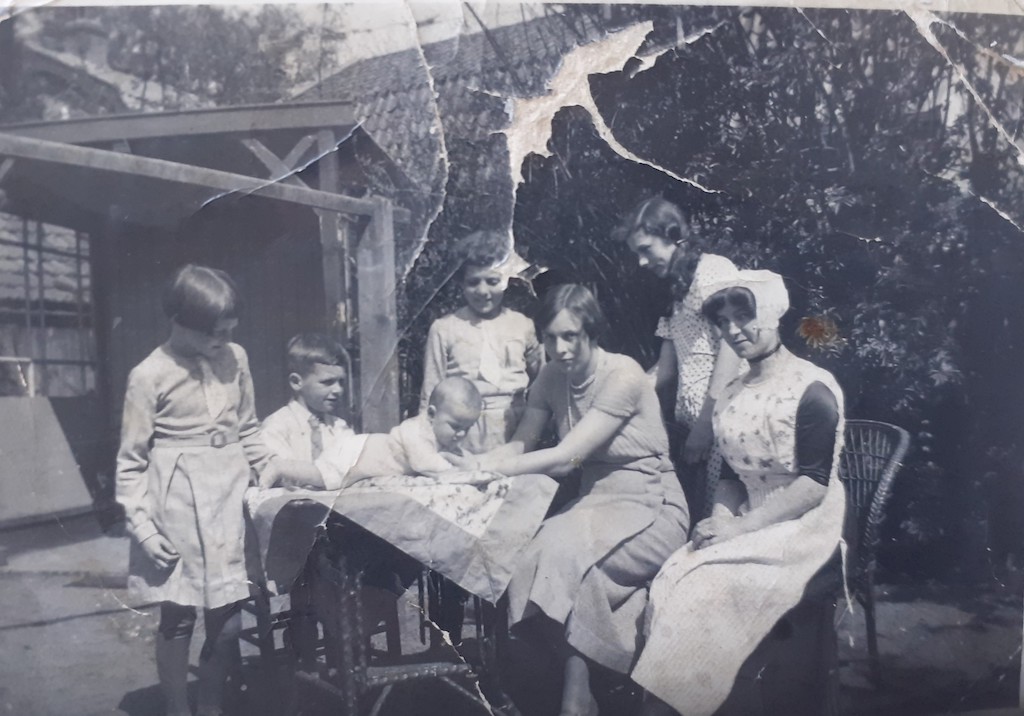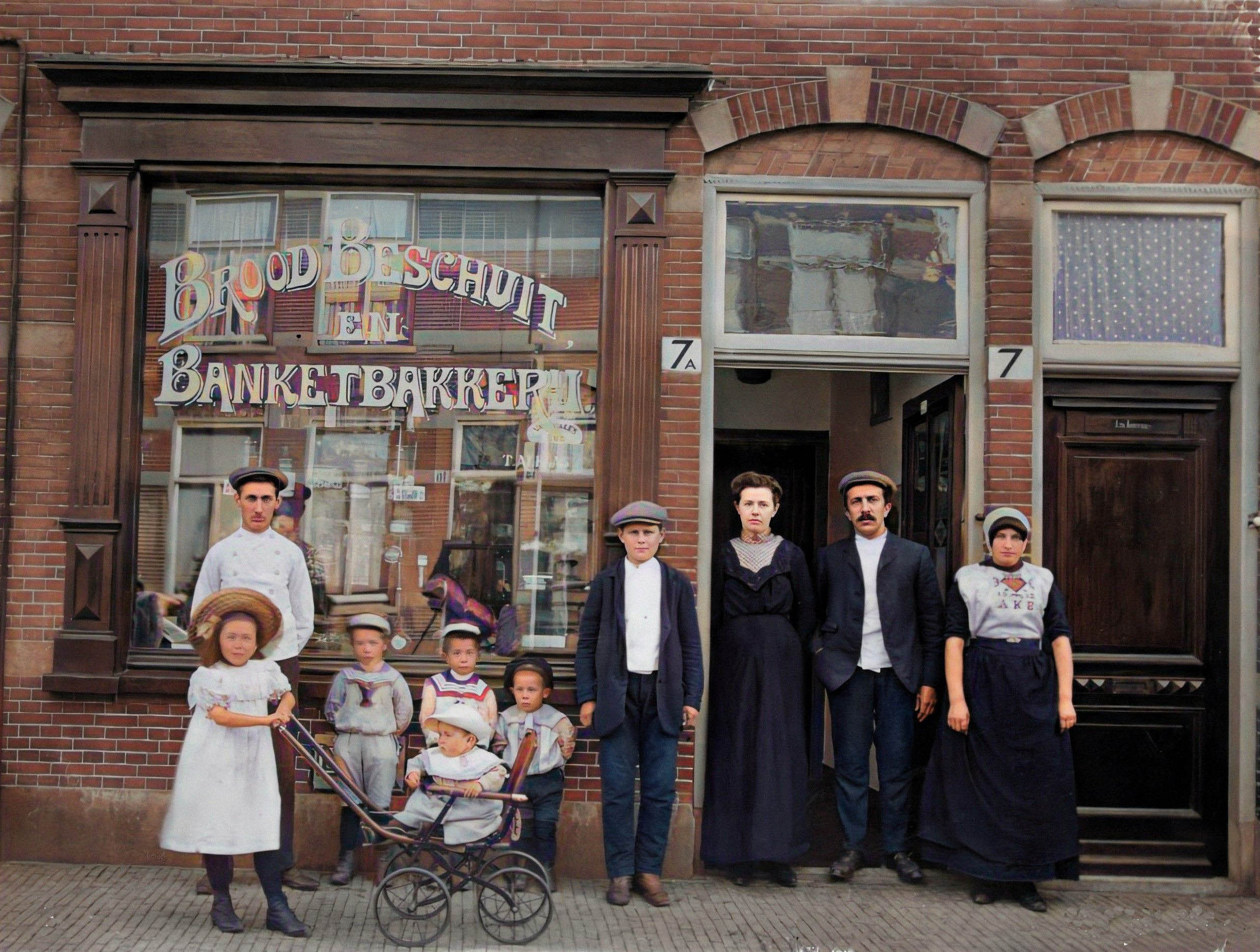
4. Nice and not so nice bosses
Working without a contract or labour law. This is what the precarious life of a maid looks like. She is subordinate to the master of the house; minimum ages and maximum working hours do not apply to ‘domestic labour’.

Marretje de Jonge is not very positive about her bosses (Collection Vrienden van Urk)
Treatment varies from family to family. Sometimes class differences rules: the maid eats alone in the kitchen, she has to run errands on Sundays or is accused of theft if something is gone.
Marretje de Jonge worked for at least six different families for six years from the age of 14. She is not very positive about her bosses.
“A hatch in the kitchen, that’s where I got my pieces of bread through, with the children’s leftovers added to it. What also grated me so much was that I found the bones of fat eel on the kitchen counter in the morning and they hadn’t given me any of it.”
But in other places, the girl is part of the family. She eats with them at the table, acts as a second mother to the children and goes on holidays with them. At times friendships for life develop.

Marretje Post remains lifelong friends with the De Bie family (private collection)
About a dozen girls are known to become pregnant by an ‘unknown father’. Although the children are taken care of in Urk, the mothers still suffer reputational loss.
Marrijtje Wakker is arrested in 1865 for ‘infanticide’ after leaving her baby in the toilet. Things end well in the end: she is reunited with her healthy daughter and later marries a widower.
Want to know more? Read the full story here.


News item from Nieuwe Rotterdamsche courant, June 13, 1866